Payroll is one of the most business-critical functions within any organisation — and in the UK, it’s also one of the most complex. Between evolving HMRC regulations, pension auto-enrolment, and Real Time Information (RTI) reporting, even small errors can have significant financial and compliance consequences.
For HR and Finance leaders, understanding how payroll works in the UK — and how technology like Workday® can simplify it — is essential to achieving efficiency, accuracy, and employee trust.
1. The Payroll Process in the UK: Step by Step
While each organisation’s payroll setup differs slightly, the UK payroll cycle typically follows a common structure:
1. Employee data collection
This includes personal details, start dates, job titles, pay rates, tax codes, and benefits. It’s crucial that HR and Finance teams maintain accurate, up-to-date information in their HRIS or payroll system.
2. Gross pay calculation
This is the total pay before deductions, including salary, overtime, bonuses, and allowances.
3. Statutory deductions
UK employers must withhold certain amounts from each employee’s pay, including:
- Income Tax (PAYE) — collected through HMRC’s Pay As You Earn system.
- National Insurance contributions (NICs) — paid by both employer and employee.
- Student loan repayments — based on income thresholds.
- Pension contributions — under the automatic enrolment rules.
4. Voluntary deductions
These may include childcare vouchers, cycle-to-work schemes, union fees, or other employee benefits.
5. Net pay and payslip generation
Once deductions are complete, the net pay is calculated and transferred to employees’ bank accounts. Payslips must be issued (digital or paper) detailing gross pay, deductions, and net pay.
6. HMRC and pension submissions
Under Real Time Information (RTI) rules, employers must report pay, tax, and National Insurance data to HMRC every pay period — on or before payday. Pension contributions are then remitted to the pension provider.
2. Key Payroll Dates and Responsibilities
– Monthly payroll deadlines
Most UK organisations pay employees on a monthly cycle, though weekly or bi-weekly schedules exist. All PAYE submissions must be made to HMRC on or before the payment date.
– Year-end activities
Employers must produce year-end summaries (P60s) for employees and reconcile all PAYE and NIC records with HMRC. Any benefits or expenses provided must be declared through a P11D submission.
– Compliance oversight
HMRC frequently updates tax thresholds and contribution rates, so payroll systems must be updated promptly to remain compliant.
3. Common Payroll Challenges
Even well-managed organisations encounter payroll challenges, such as:
- Incorrect tax codes — leading to over- or underpayment of tax.
- Late RTI submissions — which can trigger HMRC penalties.
- Complex deductions — especially for benefits, variable pay, or multi-country workforces.
- Disjointed systems — when HR, finance, and time-tracking systems don’t integrate, errors increase.
- Manual processes — leading to data entry mistakes and delays in processing.
For businesses scaling across the UK or globally, automation and integration are key to overcoming these challenges.
4. How Workday® Simplifies UK Payroll
Workday® Payroll is designed specifically for the UK market, combining compliance, automation, and analytics into one secure platform.
Here’s how it transforms the payroll experience:
- Automated tax updates — Workday® keeps PAYE, NIC, and statutory rates up to date automatically.
- Real-time calculations — instant visibility into gross-to-net data without waiting for batch processing.
- Integrated data — HR, time, and absence data flow directly into payroll, eliminating duplicate entry.
- On-demand payslips and insights — employees can access payslips, tax documents, and payment histories securely online.
- Comprehensive reporting — configurable dashboards support HR and Finance teams in monitoring costs, compliance, and trends.
This unified approach reduces risk, improves accuracy, and frees teams from manual reconciliation — enabling a more strategic focus on workforce and cost management.
5. Payroll in Emerging and Global Contexts
As UK businesses expand into emerging markets, payroll complexity increases. Different jurisdictions mean multiple currencies, tax rules, and reporting requirements.
Workday® supports global payroll integration — connecting local payroll providers to a single platform, allowing HR and Finance leaders to maintain visibility, control, and consistency across every region.
6. The Strategic Role of Payroll
Modern payroll is no longer just an administrative function — it’s a vital part of the employee experience.
- Timely and accurate pay builds trust and retention.
- Payroll analytics provide insights into workforce costs, overtime trends, and forecasting.
- Integrated payroll data strengthens strategic financial decision-making.
When payroll runs smoothly, it directly enhances engagement, compliance, and business performance.
Final Thought
For HR and Finance leaders, understanding how UK payroll works — and how platforms like Workday® simplify it — is fundamental to digital transformation.
A well-managed payroll process isn’t just about paying people correctly; it’s about enabling strategic, compliant, and employee-centred operations.
If you’re exploring ways to enhance your payroll efficiency or adopt Workday® Payroll, click here to get in touch with us at Clientside — our team would be delighted to share what’s working best across the Workday® ecosystem.

